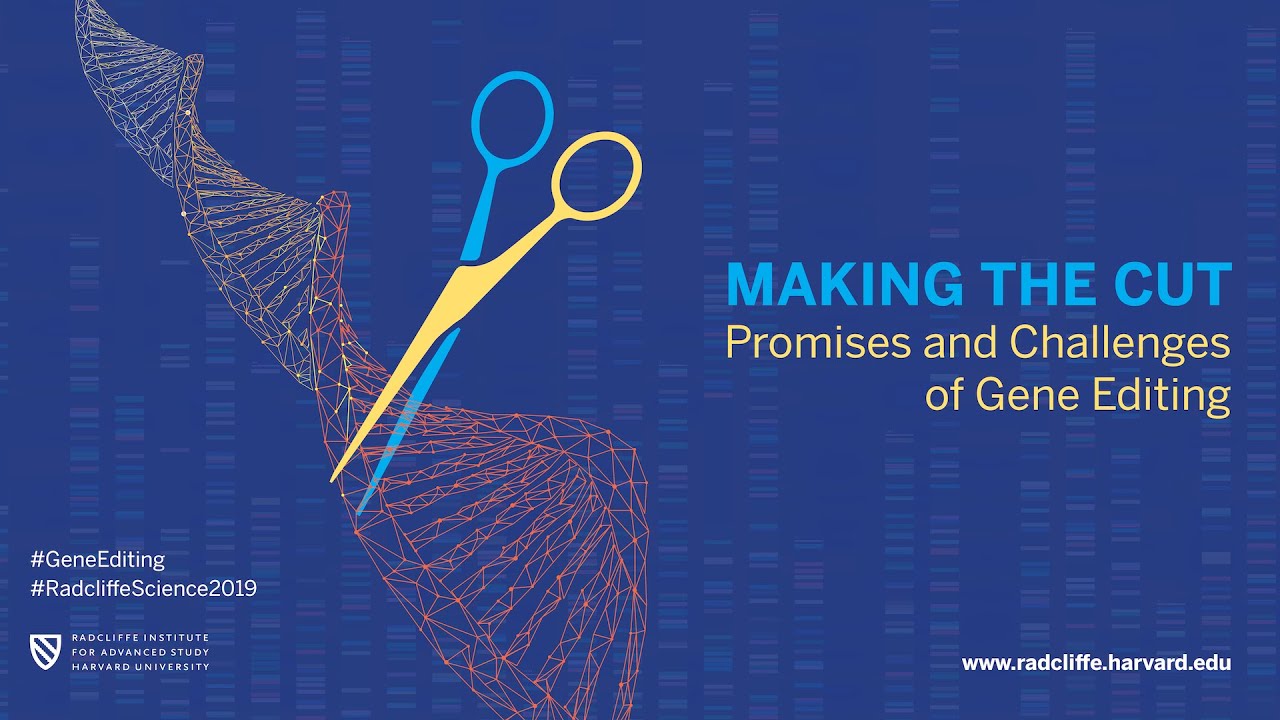The 2019 Radcliffe Institute science symposium is on gene editing, a technology that enables scientists to change an organism’s DNA. Leading international scientists, clinicians, and ethicists gather to explore case studies of particular gene therapies and consider the legal and bioethical implications of this research.
WELCOME
Tomiko Brown-Nagin, dean, Radcliffe Institute for Advanced Study; Daniel P.S. Paul Professor of Constitutional Law, Harvard Law School; and professor of history, Harvard Faculty of Arts and Sciences
FRAMING REMARKS (04:41)
Immaculata De Vivo, life sciences advisor, Radcliffe Institute for Advanced Study; professor of medicine, Harvard Medical School; and professor of epidemiology, Harvard T.H. Chan School of Public Health
SESSION 1: SCIENCE AND SOCIETY (11:47)
Introduction by moderator: Charmaine DM Royal, associate professor of African & African American studies, biology, global health, and family medicine & community health, Duke University
SCIENCE KEYTNOTE (17:22)
Sylvain Moineau, Canada Research Chair in Bacteriophages, Department of Biochemistry, Microbiology, and Bio-informatics, Faculty of Science and Engineering, Université Laval (Canada)
SOCIETY KEYNOTE (37:38)
Jonathan Kimmelman, James McGill Professor and director of the Biomedical Ethics Unit, Department of Social Studies of Medicine, McGill University (Canada)
PANEL DISCUSSION (53:32)
AUDIENCE Q&A (1:14:33)
For information about the Radcliffe Institute and its many public programs, visit https://www.radcliffe.harvard.edu/.
Facebook: http://www.facebook.com/RadcliffeInstitute
Twitter: http://www.twitter.com/RadInstitute
Instagram: http://www.instagram.com/radcliffe.institute
Making the Cut | Session 1: Science and Society || Radcliffe Institute
